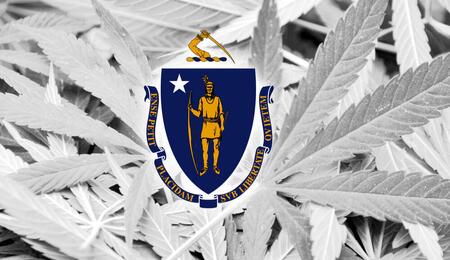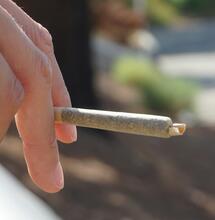Massachusetts’ Retail Weed Sales to be Taxed at a Maximum 20 Percent Rate

State House and Senate negotiators reached an agreement that would allow retail weed sales to be taxed at a maximum 20 percent rate.
BOSTON — State House and Senate negotiators reached an agreement Monday on a revamped version of Massachusetts’ voter-approved marijuana law that would allow retail pot sales to be taxed at a maximum 20 percent rate. The deal was struck following closed-door negotiations by a six-member conference committee tasked with reconciling sharply different approaches to marijuana regulation and taxation. The talks had dragged on well past the June 30 deadline legislative leaders originally set for crafting a compromise. The bill mostly splits the difference between a House proposal to raise the total tax on marijuana to a mandatory 28 percent and the Senate version, which called for keeping the tax at the maximum 12 percent established by the November ballot question. The compromise calls for consumers to pay a 10.75 percent excise tax in addition to the state’s regular 6.25 percent sales tax. Cities and towns also would have the option of adding a 3 percent local tax. Municipalities could temporarily recoup an additional 3 percent of sales through host community agreements signed with marijuana businesses. Lawmakers also compromised on a dispute over local control of pot shops. In cities and towns where voters backed the ballot question — which was the case in more than 260 of the states 351 communities — a referendum would be required to ban or restrict retail marijuana stores. But in communities where a majority of residents voted against Question 4, pot shops could be barred by a simple vote of the board of the selectmen or city council, without the need for a vote of local residents.
The compromise bill faces up or down votes in the House and Senate later this week.
Marijuana legalization advocates had discouraged lawmakers from making any changes to the ballot question, but expressed relief Monday that the final bill did not include what they viewed as more onerous language contained in an earlier House-passed bill.
“We obviously wanted to see it move forward as passed by voters, but we’re not naive,” said Jim Borghesani, spokesman for the group Yes on 4. “We knew there was going to be a compromise of some kind.”
Neither the House nor the Senate tinkered with the current legal possession limit of up to one ounce of marijuana, or home growing allowances of up to a dozen pot plants per household.
“We have protected the right of adults to grow, possess, and use marijuana. To give them access to a safe, legal supply, the bill removes barriers to the development of a legal market,” said Sen. Patricia Jehlen, a Somerville Democrat who was the lead Senate negotiator in the conference committee.
The compromise on taxes would keep Massachusetts below the rates in several states, including Colorado and Washington, which previously legalized recreational marijuana.
“We feel confident this will bring in enough revenue to properly implement and regulate this new marketplace, and allow us to invest in key areas such as substance abuse,” said Rep. Mark Cusack, a Braintree Democrat who led the House in the talks.
House Majority Leader Ron Mariano, who also was involved in negotiations, called the bill a “fair compromise” and said the local option taxes would encourage municipalities to embrace marijuana businesses.
The measure calls for a five-member Cannabis Control Commission, appointed by the state treasurer, governor and attorney general, to regulate all aspects of recreational and medical marijuana in Massachusetts. The ballot question envisioned a three-member commission controlled entirely by the treasurer.
Lawmakers also added measures to promote racial diversity in the legal cannabis industry and address the historically disproportionate impact the “war on drugs” had on minority neighborhoods.
Republican Gov. Charlie Baker said Monday he had not seen details of the final bill, but did not indicate major concerns with the compromise language on taxes or local control.
SOURCE
GreenRushDaily.com
S
Soft Secrets



